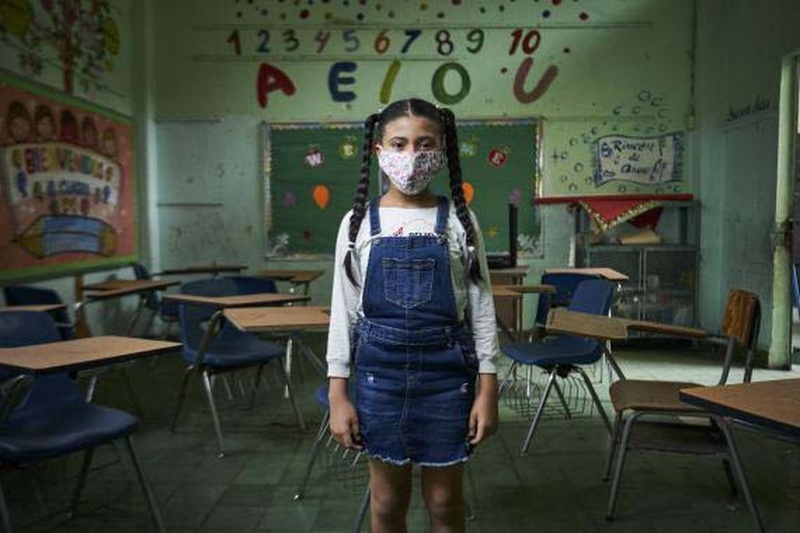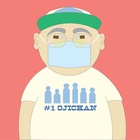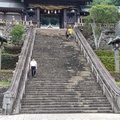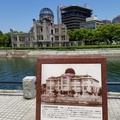While I was observing and communicating with Japanese UNICEF Advocates on the street, some questions came to my mind:
—Do the current pandemic and economic challenges affect the Nikkei communities in different countries the same way? How do the Nikkei communities in different countries perceive economic challenges, racism, prejudice, and even vaccinations?
—For example, do Japanese Peruvians, Japanese Columbians, or Japanese Mexicans face more challenges than Japanese Americans, Japanese Canadians, Japanese Brazilians, or the Japanese in Europe? Or all groups treated the same now, due to the current pandemic?
—Do Nikkei who have privilege take for granted how the pandemic and economic challenges can impact the future of their children?
—How are children in different Nikkei communities affected by living through the pandemic? What do they have to say? What do they Fear? Are their voices even heard?
—How can I, as a Nikkeijin living in Japan, bring this issue to light? Where do I begin?
Due to another COVID-19 related State of Emergency in Japan, I decided to continue the communication virtually on the Japanese UNICEF website. I eventually transferred to the UNICEF English website and came across two of many insightful articles. Granted permission by UNICEF, the following information is being shared to help those in the Global Nikkei community think and ask themselves how to discuss--or keep discussing--these difficult topics with their children.
According to data provided by UNICEF:
In poverty-stricken countries such as Guatemala, Sierra Leone, and Madagascar, between 60 percent to over 66 percent of children lived in economic distress and poverty BEFORE the pandemic. The combination of the pandemic and increased economic uncertainty led to increased risks of Child Neglect, Abuse, and Child Exploitation.
On the contrary, high-income countries in North America and Europe created stimulus packages to off-set the economic impact of COVID-19. However, the majority of stimulus packages provided more for businesses than families and children. In the US, for example, about $10.8 trillion dollars was set aside for a 2020 stimulus package, but 90 percent was put aside to save businesses. That meant 10 percent remained, with only a PORTION of that 10 percent being available to take care of children's needs. In actuality, a little over 2 percent was set aside to help children.
Someone reading this information might wonder:
If parents are receiving stimulus packages for their families, then the children are taken care of, anyway. So why are you emphasizing 2 percent?" In reality, there are other factors to consider, such as children in foster homes or refugee camps. When you look at those factors, now the 2 percent seems a little more pitiful, doesn't it? When you weigh 2 percent for children in the US versus 90 percent for businesses in the same country, it becomes a sad contrast.
Someone else might read this information and ask:
What does this have to do with the Nikkei community?" That question would lead back to MY original questions, such as: Do Nikkei who have privilege—especially in high income countries—take for granted how the pandemic and economic challenges can impact the future of their children? Do Japanese Peruvians, Japanese Columbians, or Japanese Mexicans face more challenges than Japanese Americans, Japanese Canadians, Japanese Brazilians, or the Japanese in Europe? How are children in different Nikkei communities affected by living through the pandemic? What do they have to say? How often do parents have conversations about racism, increased violence, inequality, and economic challenges with their children?
Regarding Vaccinations:
Is the existence of vaccinations the easiest topic to discuss, because it can be approached as a health-related issue like other shots? If children only see vaccinations as health-related without knowing the full implications behind their existence, will that mindset protect them from the seriousness of the pandemic's impact on every aspect of our lives? On the other hand, will children in groups such as the Japanese Peruvian community—often discriminated against by mainstream Peruvian society BEFORE the pandemic—forced to have these discussions with their parents and acknowledge the pandemic's overall impact? Are the voices of Japanese Peruvian, Japanese Columbian, or Japanese Mexican children different from the voices of children in Japanese American, Japanese Canadian, or Japanese European communities? Do Japanese Brazilian or Japanese Peruvian children in Japan have different voices than those still in Brazil or Peru? What about the Nikkei children in places such as Southeast Asia, Australia, and New Zealand? Are their voices even heard?
Many privileged Nikkei in high income countries can read UNICEF's information and feel compassion for those children around the world living in economic distress. However, are there Nikkei communities that feel as though they're on the brink of sinking into a[nother] PTSD hole? Surely the children in these communities can feel the fear and pressure, but might not know how to express their feelings about the pressure. Are parents taking their children's feelings for granted? Or are parents providing a platform for their children's voices? Perhaps children's voices could be Therapy for the parents.
Special Thank You to UNICEF for granting me permission to share its content!
UNICEF information is originally taken from:
UNICEF. "Child Poverty Will Remain Above Pre-COVID Levels For at least Five Years in High-Income Countries". December 11, 2020
UNICEF. "Protecting Families from the Economic Impact of COVID-19". October 16, 2020.
© 2021 Tuney-Tosheia P. McDaniels







